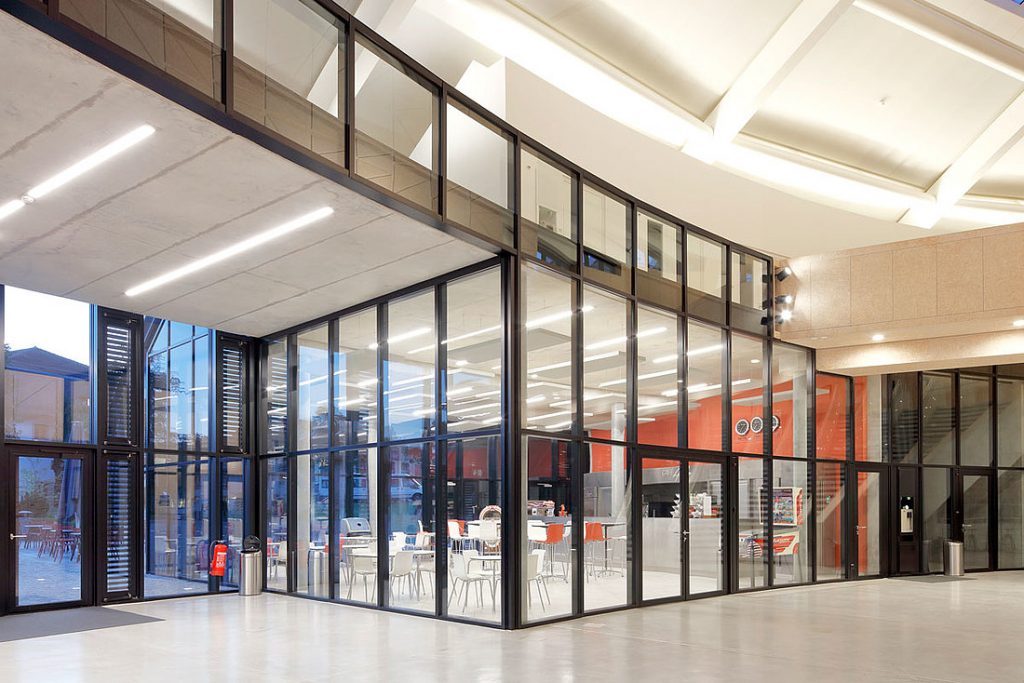

When it comes to designing, building, or even renovating a commercial property, it is important to ensure that you have everything covered. More often than not, windows and doors will represent the second greatest expense to a new-build, so it’s important to ensure that you pick the right ones. Whether you want to fit a series of wooden windows to re-invigorate your storefront, or have a series of custom-made bronze, copper-clad windows designed for your multi-level boutique hotel, there can be many things to choose from. And with so many Americans spending so much time at their place of work, it’s important that windows strike the right balance between comfort and performance.
From shops to hotels, from car show-rooms to museums, we have done it all here at Open Architectural Windows and Doors. So, we decided to put together a short article for you giving you insight into the three most important things to look out for when choosing windows for commercial properties–materials, aesthetics, and efficiency. We when we’re working with customers to help them figure out what what they need, we like to tell this: Form (material and style) should follow function (what do I need the window to do?)
The kind of material and style of commercial windows will largely depend on the kind of building and what it will be used for. Also, environmental factors, such as whether it is close to water or exposed to unusually high winds, and regional codes, such as whether the building or its surrounding neighborhood are historic landmarks, may also play a role in shaping your needs. For example, in coastal areas where there is both moisture and salt in the air, metal windows will hold up much better than wooden windows.
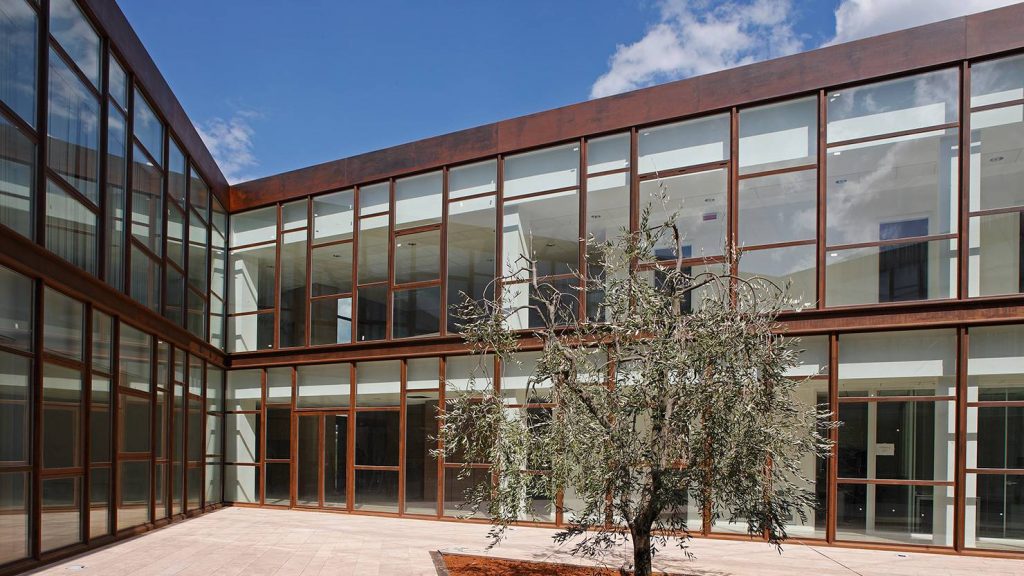
As we’ve said, there is no one right material to choose for commercial windows and doors. The material you choose should be a combination of aesthetics and needs, and takes any environmental and regulatory factors into concern. Whilst wooden and vinyl windows have been a popular choice over the past several decades, more and more people are turning to materials such as aluminum, steel, and even bronze. The main reason for people choosing metals such as aluminum and steel is the fact that slimmer profiles are easier to achieve with those materials. Wood, however, remains a classic choice and is a particularly popular choice for traditional shopfronts. One increasingly popular look is wood-clad windows. This is a combination of wood and aluminum, which allows the client to keep the feel of wood indoors, and all of the protection of aluminum outside. You can learn all about these here.
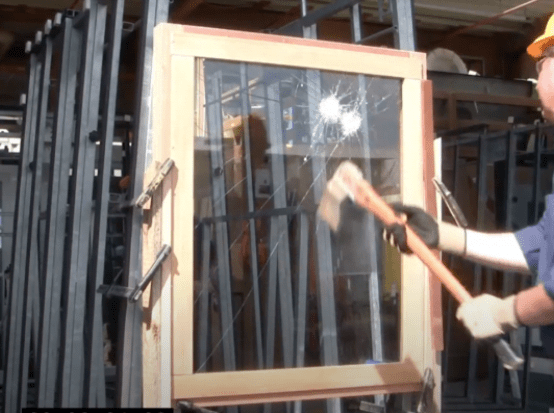
Of course, windows and doors don’t just consist of frames– glass plays a very important role, too. Indeed, when it comes to choosing glass for commercial windows, two features are of paramount importance: impact and sound resistance.
Firstly, it should of course go without saying that commercial properties need to be safe and secure. After a property’s entry door, its windows are the most likely point of entry for anyone attempting to break in. With this in mind, it should be clear just how important windows are to any building’s security. Break-ins in any building can be very inconvenient for those involved. They can become even more inconvenient if there is cash or stock on the premises. Therefore, each client should also consider whether or not they will need reinforced, or breakthrough resistant glass for their property.
This involves tempered glass with extra layers of polycarbonate glazing on the exterior as well as in between each layer of glazing. When attacked with tools, the glass will never shatter, but only begin to crack under extraordinary pressure. You should also consider anti-burglary fittings on all windows. This will be more of a concern with ground level storefronts and much less so with multi-level units. You can learn more about all of these in our dedicated article on high-security windows and doors
Noise pollution can be an issue in urban areas. As a result, Open AWD strongly recommends investing in windows with quality soundproofing. Whether you own a small business, or a sprawling office development, noise pollution and soundproofing is something you need to consider. This is particularly important if a building is within earshot of traffic, car horns, low-flying airplanes, sirens, construction noise, or even loud neighbors, your home will be subject to much low-frequency (i.e. loud noises from a distance). Many windows are unable to withstand such low-frequency noise. If that’s the case, then your window might only let it unwanted noise, but could also cause vibrations, too. In this instance, you would need a lower STC rating.
They say don’t judge a book by its cover. But, as we’re sure you’ll agree, many people will look at a property’s facade–specifically at its windows and doors–and make assumptions about what the interior looks like. The kind of window you have, generally-speaking, should be a reflection of taste. As a result, they should provide ample natural light and comfort for those within the building. Natural light is incredibly important to any space, has many natural benefits, and can cut down on costs associated with artificial lighting. As a rule of thumb, larger windows will allow in more light and create a brighter, livelier and more inviting environment.
There are many different commercial window styles available. Each style comes with its own unique benefits. Some styles will suit more traditional homes better; whereas others will be more at home on more modern and contemporary buildings. There has been a trend towards more slimline windows in recent years. In our experience, this is a trend which has increased year on year. As a result of this, muntins—which were historically used as structural components to divide panels of glass within a window—have become slimmer. Ultra-slim profile windows will ultimately have quite a different impact on your facade than choosing slightly thicker, more traditional ones.
That being said, each project demands its own approach. Whilst steel is becoming more and more popular, some projects demand wooden windows and doors. For example, we re-desisned and re-fitted this storefront in Manhattan’s East Village a few years ago. As it turned out, the building had been designated a landmark by New York’s Landmark Preservation Commission. Its facade, however, had been completely plastered over in a previous renovation. A previous contractor had replaced the once beautiful windows with cheap, low-quality windows. Open AWD were contracted to redesign these. You can see pictures below and read about the entire process here.
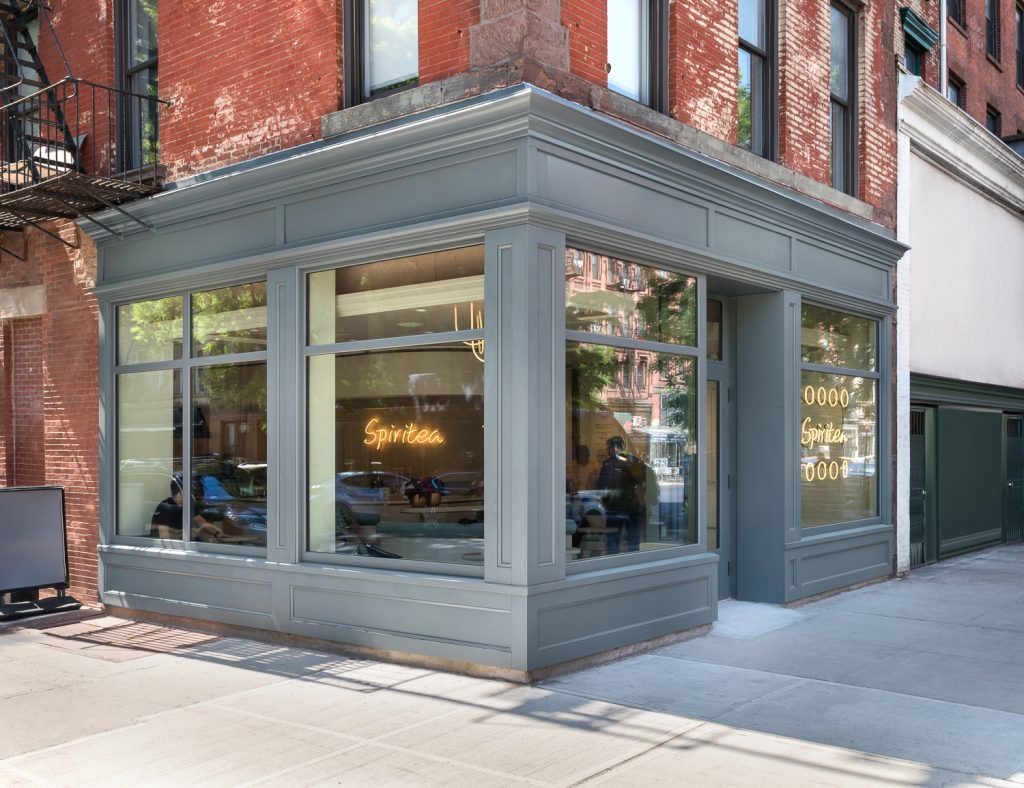
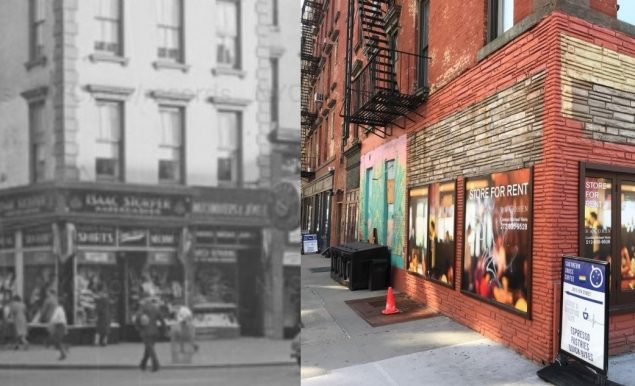
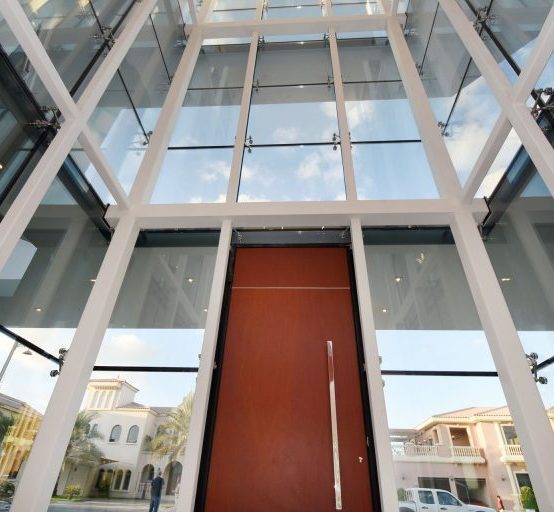
Windows come in all shapes and sizes. Windows for a traditional storefront will, for example, look very different from the windows in a modern showroom.
As such, we recommend exploring all of your options for custom-sized IGUs (insulated glazing units). Standard-sized IGUs will suit many commercial properties.
However, when it comes to bigger buildings, oversized IGUS (also known as jumbo glass) are certainly more popular. This is true of buildings such as sky-scrapers, showrooms, museums, and many buildings which feature modern design. Oversized windows are often an integral part of modern architecture. They contribute massively to the overall appearance of a building. For example, take a look at some pictures of oversized windows we installed at a luxury car showroom in Manhattan. For more on oversized IGUs, read our article on them.
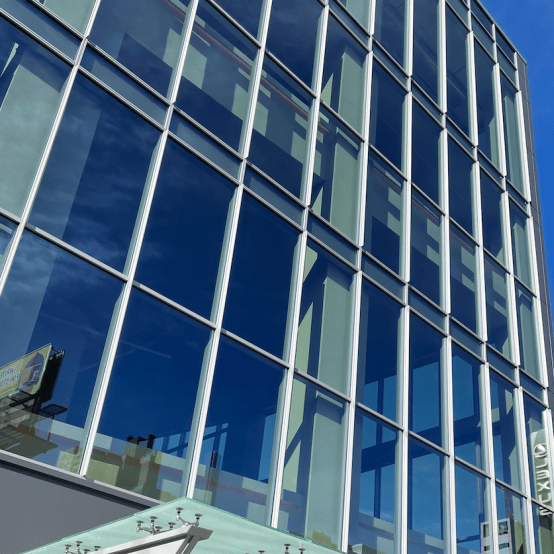
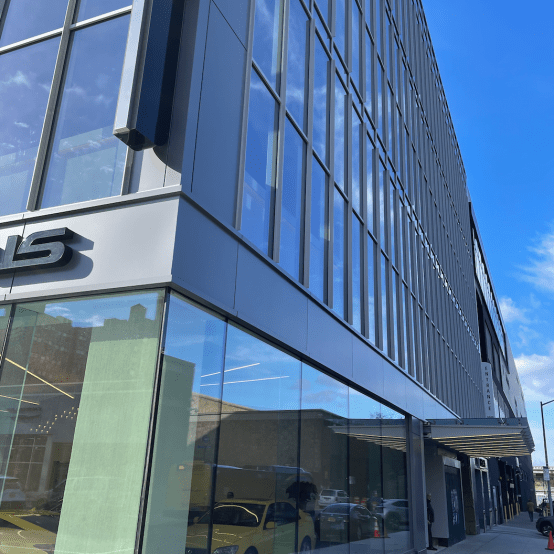
A showroom in Manhattan for which Open AWD recently supplied 15,000 sq. feet of unique paneling as well as a glass mullion system.
Wood, aluminum, and steel can be finished in almost any color. This means that you can choose a color that either complements, or stands in contrast to, the building. Wooden windows can be easily painted in any color. They will, however, need to be repainted multiple times over the course of their life. Aluminum and steel are much easier in that regard. They can be finished in any RAL color. The finishing process is known as powder coating and powder-coated steel can last up to twenty years and will require much less maintenance. Metals such as bronze or copper need the least amount of maintenance. In fact, their patinated appearance will actually improve over time and continue to age gracefully.
Efficiency within commercial windows is always a real concern. As we pointed out, because people spend so much of their time at work, it’s important to ensure that windows are efficient. Efficient windows can maintain a cool temperature in warmer weather, and maintain a warm temperature when it’s cold outside.
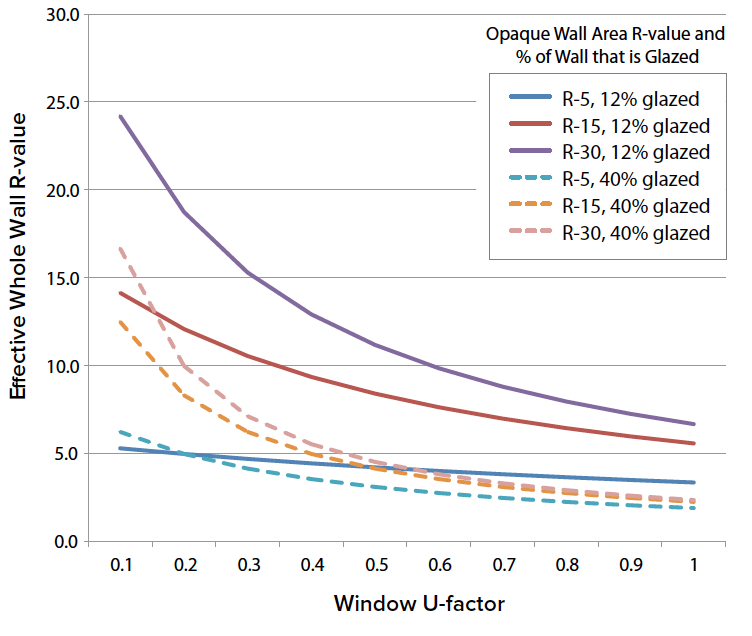
U-Factor (also known as U-Value) is one of the most important aspects of choosing commercial windows. It measures how effectively a window can retain heat inside a home and reduce heat loss. The lower the number, the more heat it retains. So, a window with a U-Factor of 0.20 will retain heat better than one with a value of 0.5. The climate you live in plays a very big role in determining the U-Factor you’ll need your windows to have. More on this below.
Windows have an enormous effect on a wall’s R-Value. R-Value is the rate at which a material resists heat passing through it. A high R-Value means the material (e.g. insulation) is effective at resisting heat flow. As you can see from the diagram, windows with a lower U-Factor can dramatically increase a wall’s R-Value.
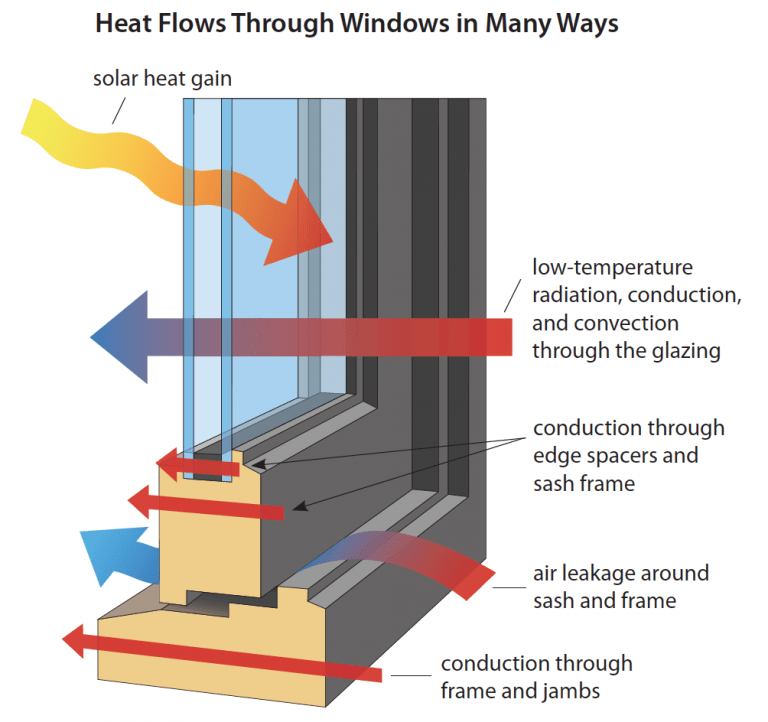
Solar Heat Gain Coefficient (SHGC) is the amount of heat that enters a building via its windows. Most of this heat will be natural heat (radiation) from the sun. The lower the number, the less heat it lets in. Conversely, windows with a high SHGC level will allow more heat into the building. This is a very important factor consider–particularly when it comes to larger buildings with more (and bigger) windows.
Natural sunlight bring in some much sought after sunlight and heat. However, it also brings in ultraviolet rays which cause floors, walls, and fabrics (sofas; cushions etc.) to fade over time. These rays also can cause harm to our skin. To combat this, microscopically-thin, completely see-through, metal coatings were created to lessen the impact of this. Low-E (low-emissivity) coatings use silver to reflect heat. In summer, it reflects the heat entering a house; in winter, it reflects the heat leaving. So, in essence, it functions very similarly to a thermos–it allows you to maintain the desired temperature inside. Warm when you want it to be warm; cold when you need it to be cold.
Within Low-E coatings, there are a number of different ways to adjust the amount of heat which passes through your windows. This can be achieved by adding additional layers or by altering which panels are coated. The level of protection you need will depend on your environment. Also, it will really matter whether or not your house is in the shade.
Gases also play a very important role in the overall performance of windows and doors. Traditionally, the space between panes of glass was left empty. However, advances in technology have shown certain gases (which can be denser than air) can actually reduce heat loss in your home. The most commonly-used gases are argon and krypton. Of those, the most widely used gas is argon. Argon can significantly reduce unwanted heat loss. Argon has a thermal conductivity rate 67% lower than air. In windows with argon gas, argon usually makes up roughly 95% or more, with air usually comprising 5% or less. Double and triple-glazed, argon-filled windows are some of the best performing windows available on the market.
If you would like to learn more about commercial windows, please contact us at 718-403-0300 or email us here and someone from our team would be happy to talk you through your options.
OPEN Architectural Windows and Doors: Proudly making your architectural plans a reality for over a decade.